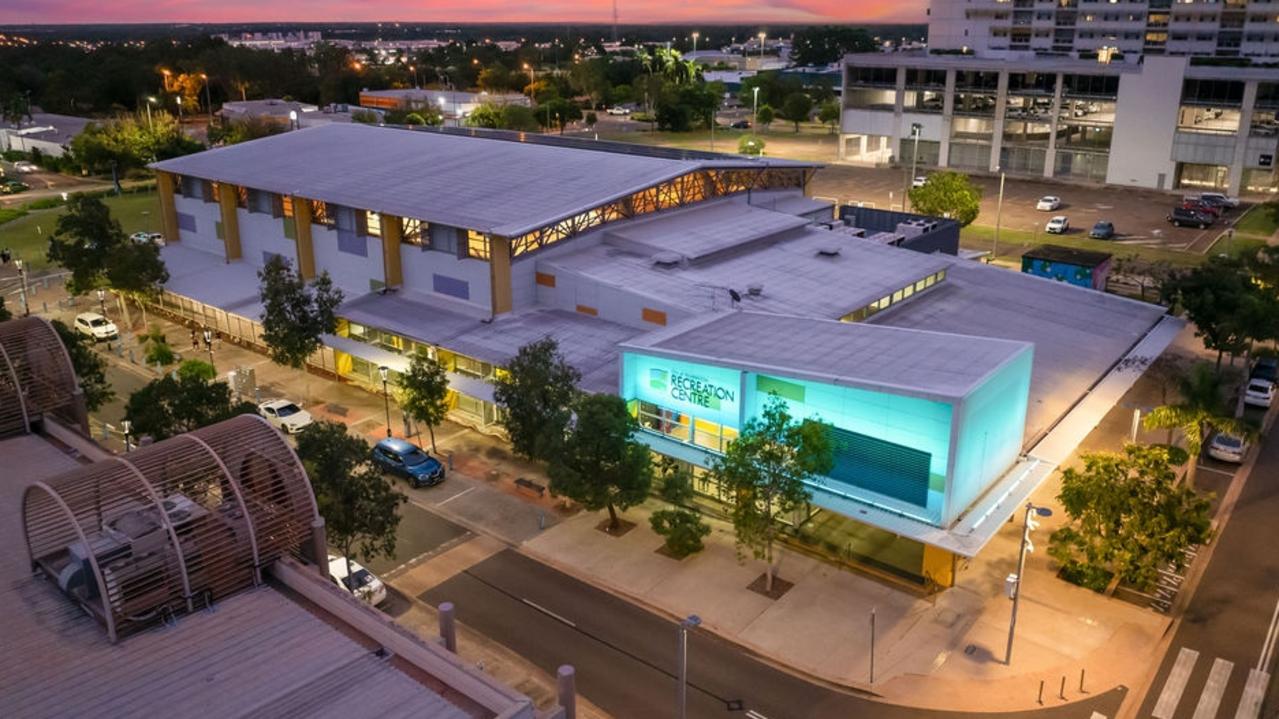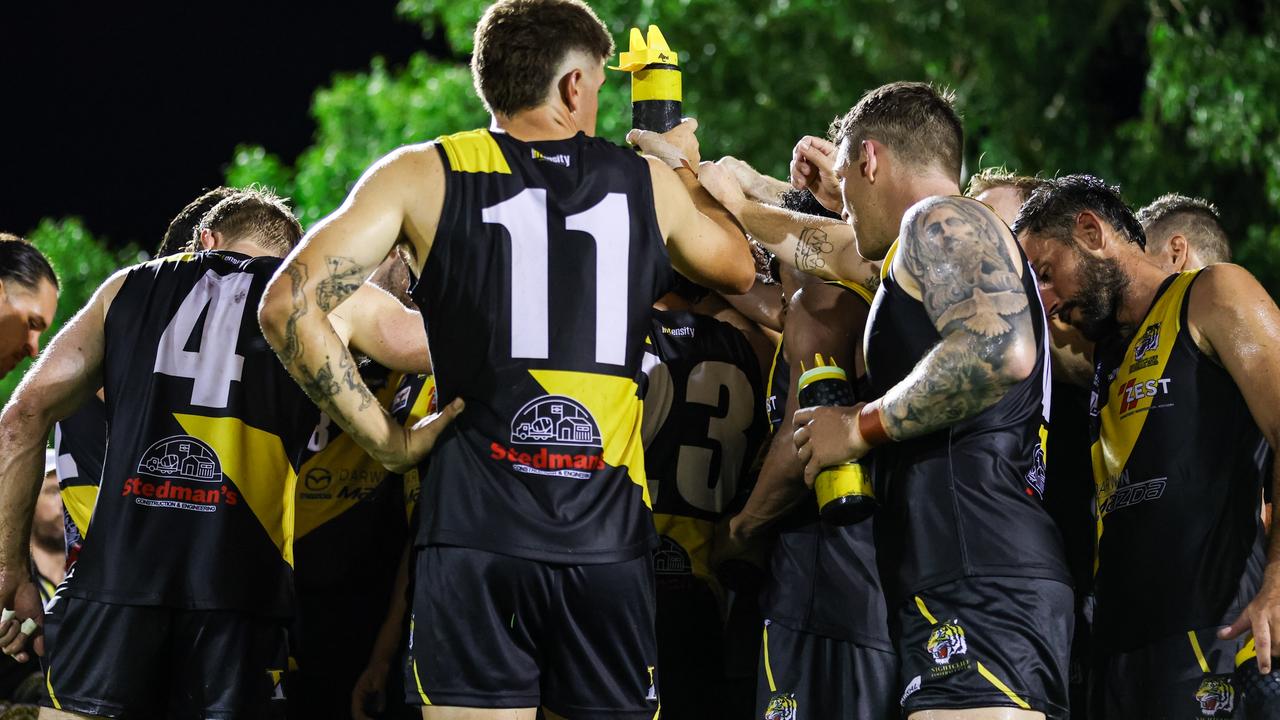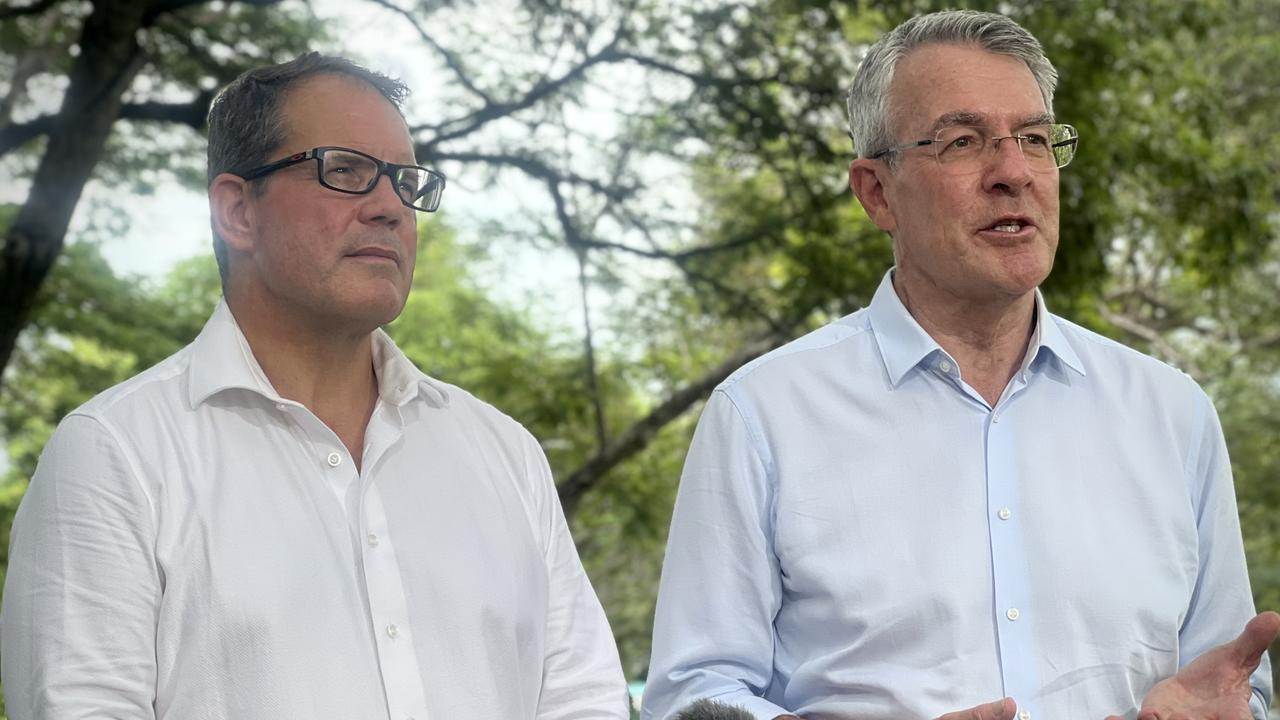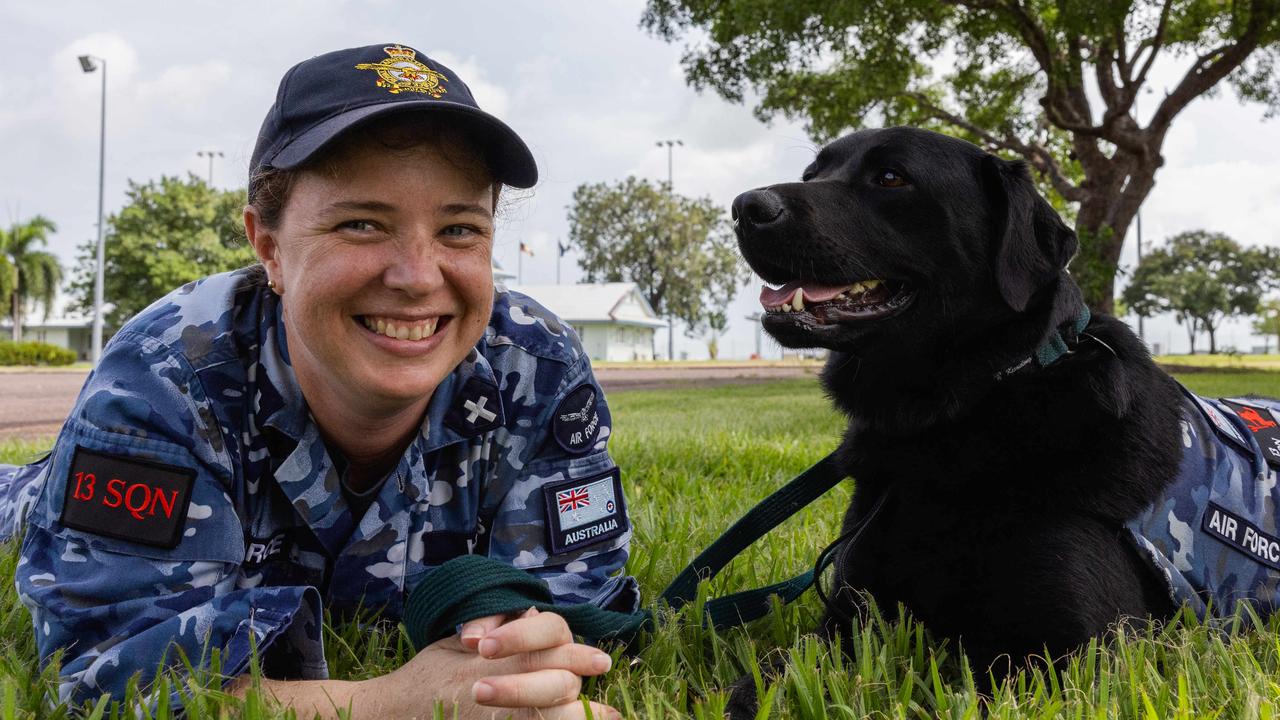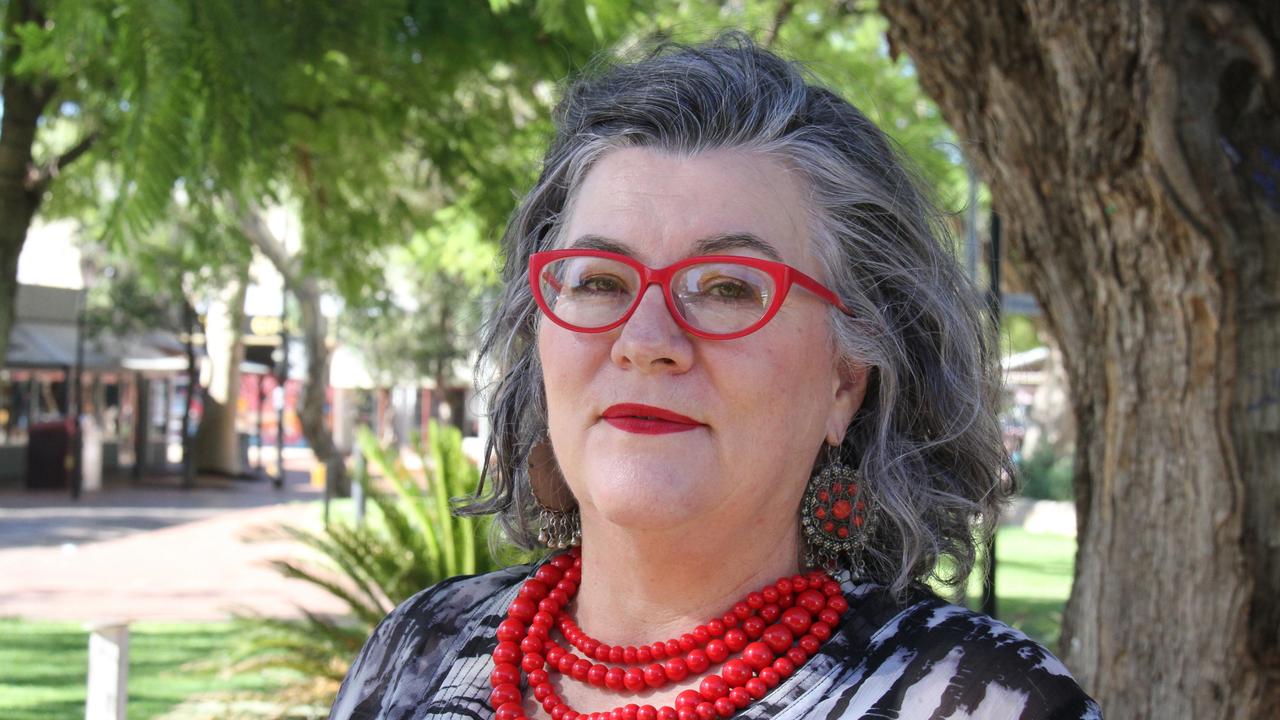Kumanjayi Walker inquest: Rolfe text messages ‘suggest negative attitudes’ towards Aboriginal people
Text messages sent between Zach Rolfe and other Alice Springs police officers could be of ‘significant concern’ if included in the inquest into the death of Kumanjayi Walker.
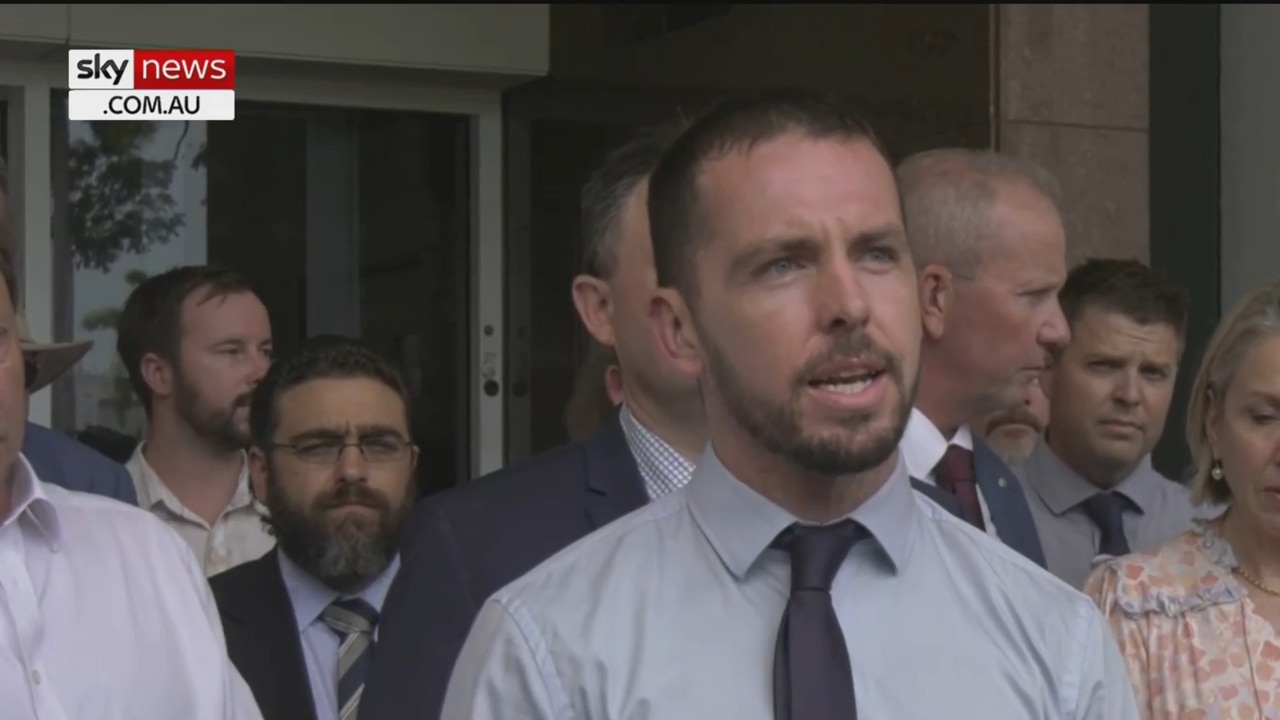
Northern Territory
Don't miss out on the headlines from Northern Territory. Followed categories will be added to My News.
TEXT messages between Constable Zach Rolfe and other Alice Springs police that “suggest negative attitudes towards Aboriginal people” would be “of significant concern” to many of their colleagues, a court has heard.
Lawyers for Const Rolfe are fighting to have the messages, downloaded from Const Rolfe’s phone after his arrest, excluded from evidence in the ongoing Coronial inquest into the death of Kumanjayi Walker in Yuendumu in 2019.
On Tuesday, counsel assisting Coroner Elisabeth Armitage, Peggy Dwyer, told the court that if tendered, the messages should be allowed into evidence to explore whether there was a risk such attitudes “may lead again to deadly confrontation”.
“Taken at face value, I anticipate submitting to your honour that some of those text messages do suggest negative attitudes towards Aboriginal people that should, and will, cause great concern,” she said.
“I expect your honour would see, if those text messages are tendered in evidence, that Const Rolfe and other police based in Alice Springs had a negative attitude towards community police.
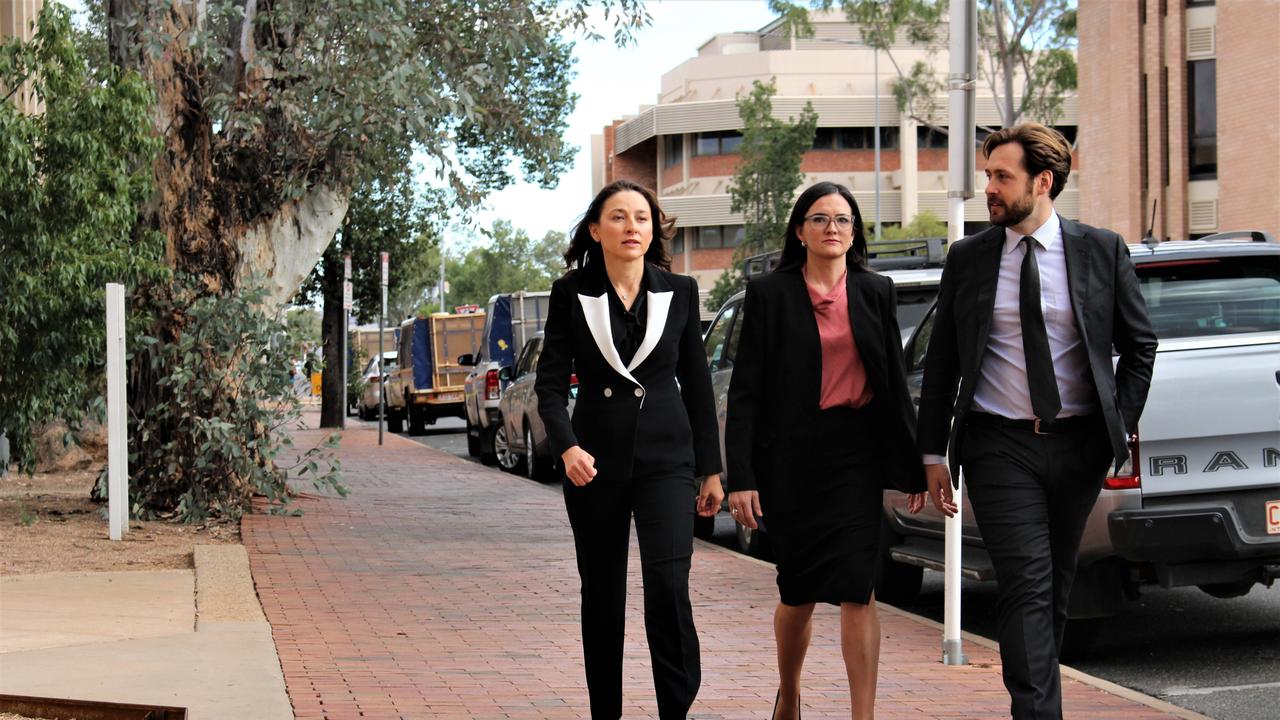
“I don’t suggest for one minute that that was all police in Alice Springs and I expect if those text messages are tendered, that they would be of significant concern to many of the serving police officers in the NT.”
Dr Dwyer said while she would not detail the contents of the messages until legal argument could be heard on Friday, they were relevant to the inquiry process.
“If there are text messages that suggest that Const Rolfe and/or some other police officers based in Alice Springs had expressed negative sentiments about Aboriginal people generally, or negative attitudes towards community police in communities where Aboriginal people predominantly reside, then this court should have them,” she said.
“The purpose of this is not to demonise those who sent the text messages and it’s not to publicly criticise them. It is to understand why those negative attitudes have formed, to understand that those negative attitudes do sometimes form and to understand what, if any, impact those attitudes might have on police behaviours when they are arresting people, and particularly vulnerable people in Kumanjayi’s situation.”
Earlier, Dr Dwyer revealed a case of mistaken identity could have been the catalyst for the chain of events that led to Mr Walker’s death.
On Tuesday, Dr Dwyer picked up where she had left off in her opening address on day one of the inquest into Mr Walker’s death at the business end of Constable Zach Rolfe’s police issue Glock.
She told the Alice Springs Local Court Mr Walker had been released on a suspended sentence less than three weeks before the fateful encounter, on condition that he attend an eight-week rehabilitation program at the Central Australian Aboriginal Alcohol Programs Unit in Alice Springs.
But just more than a week later, on October 29, 2019, Dr Dwyer said Mr Walker “packed up his belongings and he left CAAPU, in breach of his suspended sentence”, his electronic monitoring ankle bracelet later found “at one of the back boundary fences”.
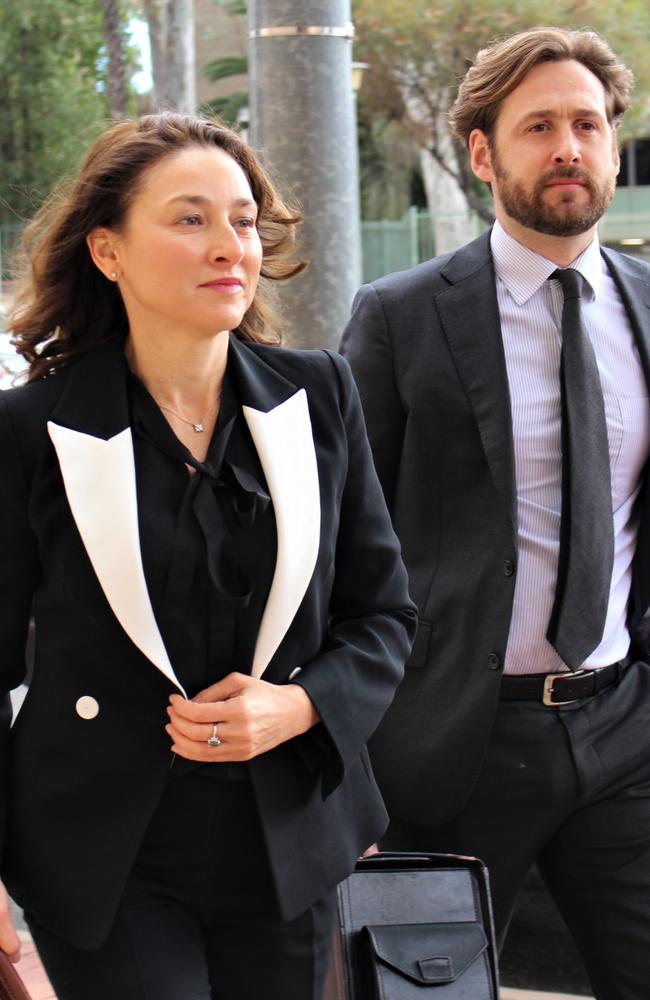
“It would subsequently become clear that Kumanjayi left CAAPU at that time because there was important Sorry Business being scheduled in Yuendumu at that time,” she said.
“As your honour will hear, Kumanjayi’s uncle had passed away and a funeral was being planned and Kumanjayi very much wanted to be with his family.”
Dr Dwyer said the breach was reported to police and a group of them tried to locate Mr Walker at the Warlpiri town camp in Alice Springs but with no luck, and an email was circulated identifying him as an “arrest target”.
Dr Dwyer said by this time, Mr Walker had in fact returned to Yuendumu and when remote nurse, Luana Symonds, reported a break in at her home while she was at work on November 6, the suspicions of investigating police fell to him.
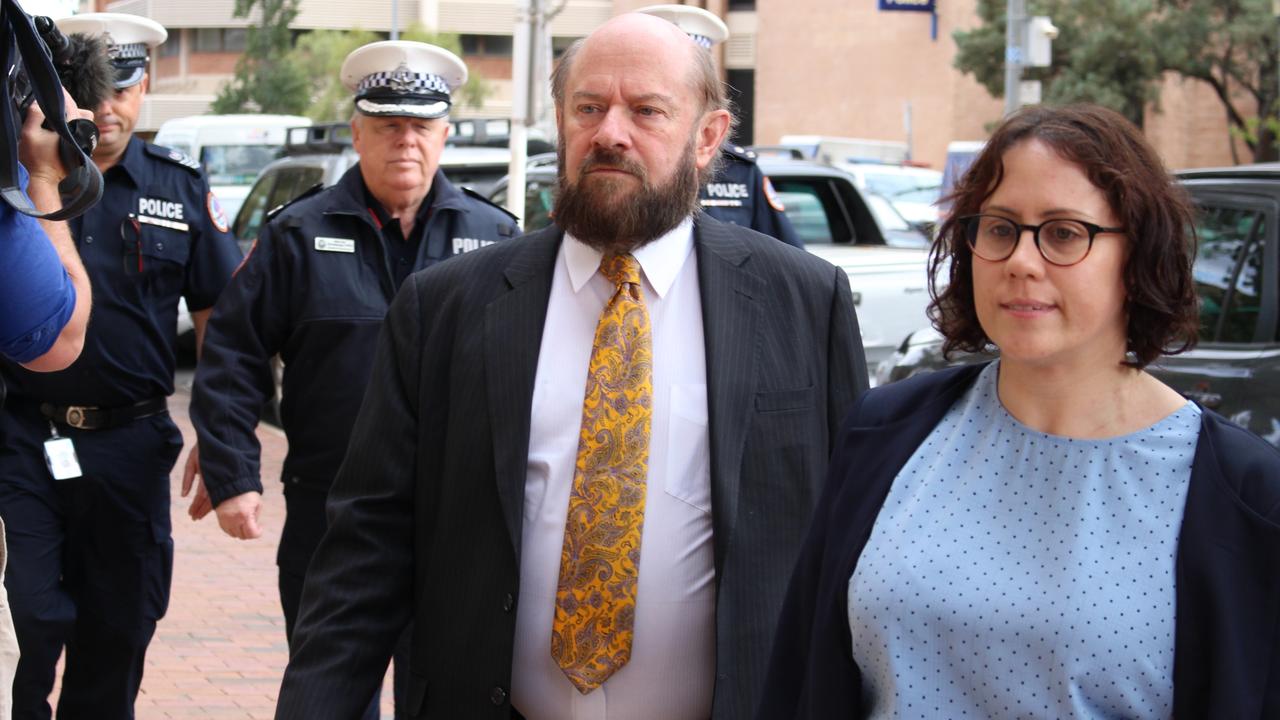
“They recorded in their notes that a person or persons unknown had smashed a hole in the gyprock ceiling and jemmied open the security screen covering the kitchen window,” she said.
“As your honour might expect, the nurse was very upset about that, the offenders had stolen around $350 in cash and coins and an iPhone.
“I suspect your honour will hear that his incident formed part of the rationale for Yuendumu nurses feeling targeted and unsafe and contributed to their decision to leave Yuendumu on Saturday, November 9, 2019.”
While on Mr Walker’s trail later that afternoon, the two attending officers, senior constables Lanyon Smith and Chris Hand, would record the axe-wielding 19-year-old on their body-worn cameras bursting past them from a room in house 577 and out into the scrub.
Three days after that, on November 9, 2019, he would be dead.
“Just to make it abundantly clear at this stage,” Dr Dwyer said.
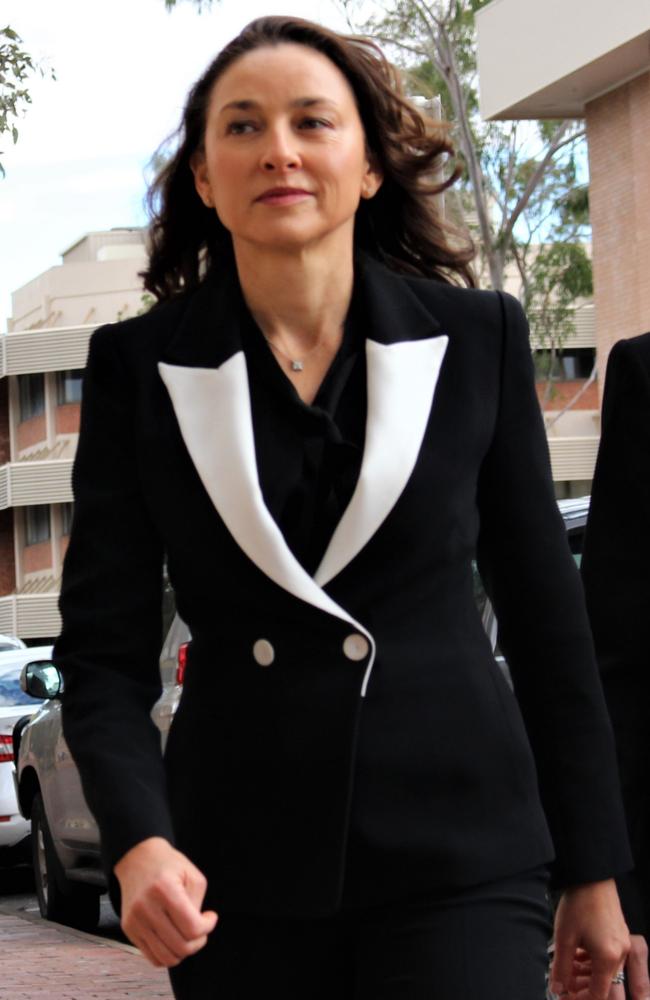
“We ultimately found out that Kumanjayi had no involvement at all in those break-ins.”
On Monday, the court heard Constable Rolfe’s father had launched a “campaign” to “intimidate” a key witness at the inquest – “perhaps on behalf of his son”.
During the first day of hearings, counsel for NT Police, Ian Freckelton QC, said public comments made by Richard Rolfe in the lead up to the inquiry were “inflammatory and, for the most part, utterly inaccurate”.
Dr Freckelton said Mr Rolfe had made repeated allegations against then officer in charge of the Yuendumu police station, Sergeant Julie Frost, in “an online publication which contends that it is a newspaper”.
He said the claims – including “that if any other police officer on the planet had been the OIC at Yuendumu, then Walker would be alive today” – amounted to “a combined campaign” between Mr Rolfe and the bloggers.
>> CATCH UP: Shooting details to be revealed for first time
Dr Freckelton said anyone, including Mr Rolfe, was “entitled to take a position and express it robustly”, saying “there is no harm in that”.
“But if a publication, or more particularly a series of publications, crosses the line into denigration, vituperation and attempted intimidation, we say, your honour, that there’s a problem, and we say that that is exactly what has been happening,” he said.
“Your honour might well conclude that the purpose of this campaign is to intimidate persons who are not sympathetic to the position being promulgated by Richard Rolfe, perhaps on behalf of his son, from talking the truth that we’ve been speaking about this morning.”
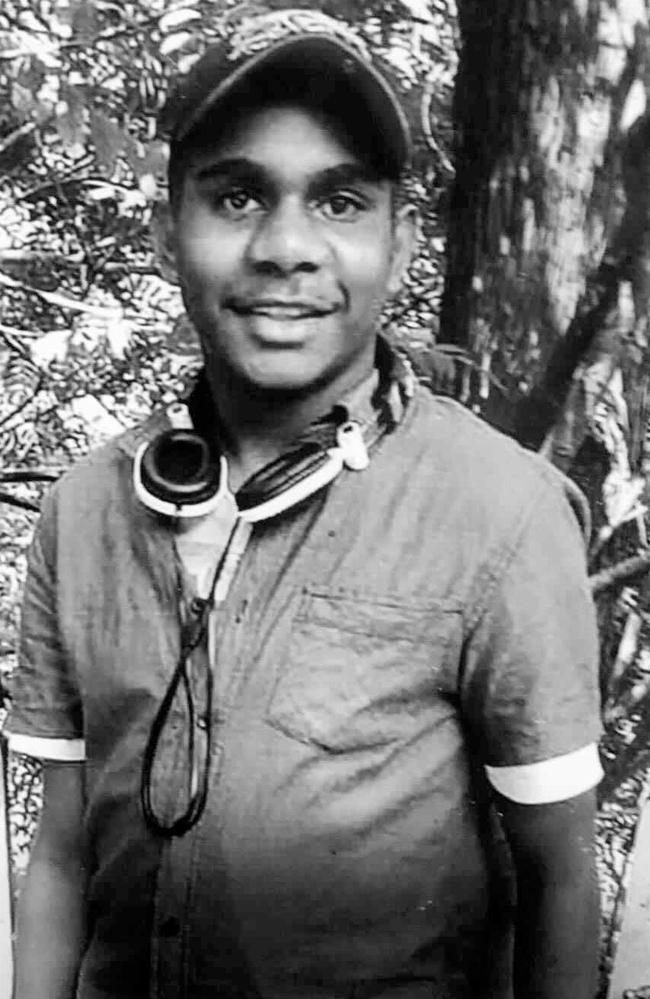
Dr Freckelton said while he was not making an application for the publications to be ruled in contempt of court, “we may well ask your honour to exercise your powers” in the event of any ongoing “false reporting”.
“We are not here to hide the truth, each member of the NT Police force, required to give evidence, will be in that witness box and will tell you the truth and they can be cross examined by anyone here,” he said.
“What we ask is that this process is not distorted and that there be simply fair reportage of what takes place.”
Counsel assisting the Coroner, Peggy Dwyer, said while she had not read the publications in question, Sgt Frost had sought to appear remotely at the inquest because she felt “intimidated and concerned by the articles”.
Dr Dwyer said any suggestion Sgt Frost had refused to provide first aid to Mr Walker was “on the material I have seen so far”, “patently false”.
“Sergeant Julie Frost was a nurse prior to becoming a police officer but she had not practised as a nurse for something like 14 years,” she said.
“We will see that after the tragic shooting of Kumanjayi, the CCTV footage in the police station shows that he was being ably assisted in terms of first aid by officers Rolfe and (James) Kirstenfeldt who had advanced first aid training because of their particular experience in the army.
“Sergeant Frost was busy at that time arranging an ambulance to come, updating senior police officers and doing what she could to assist in the circumstances.”
The inquest continues on Tuesday.
More Coverage
Originally published as Kumanjayi Walker inquest: Rolfe text messages ‘suggest negative attitudes’ towards Aboriginal people




